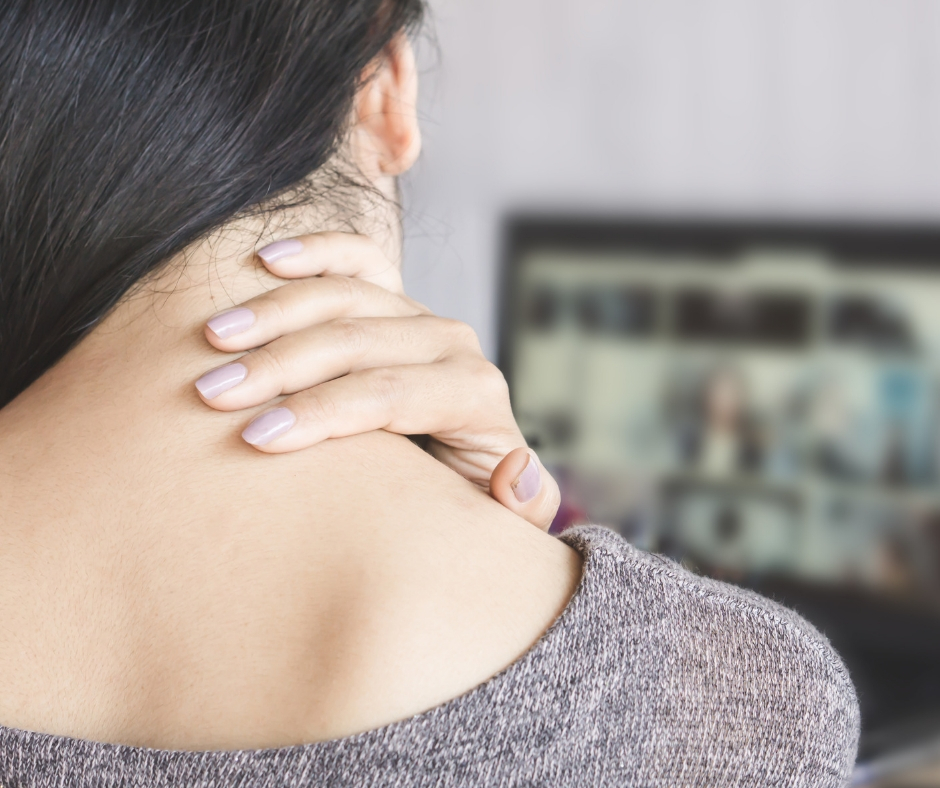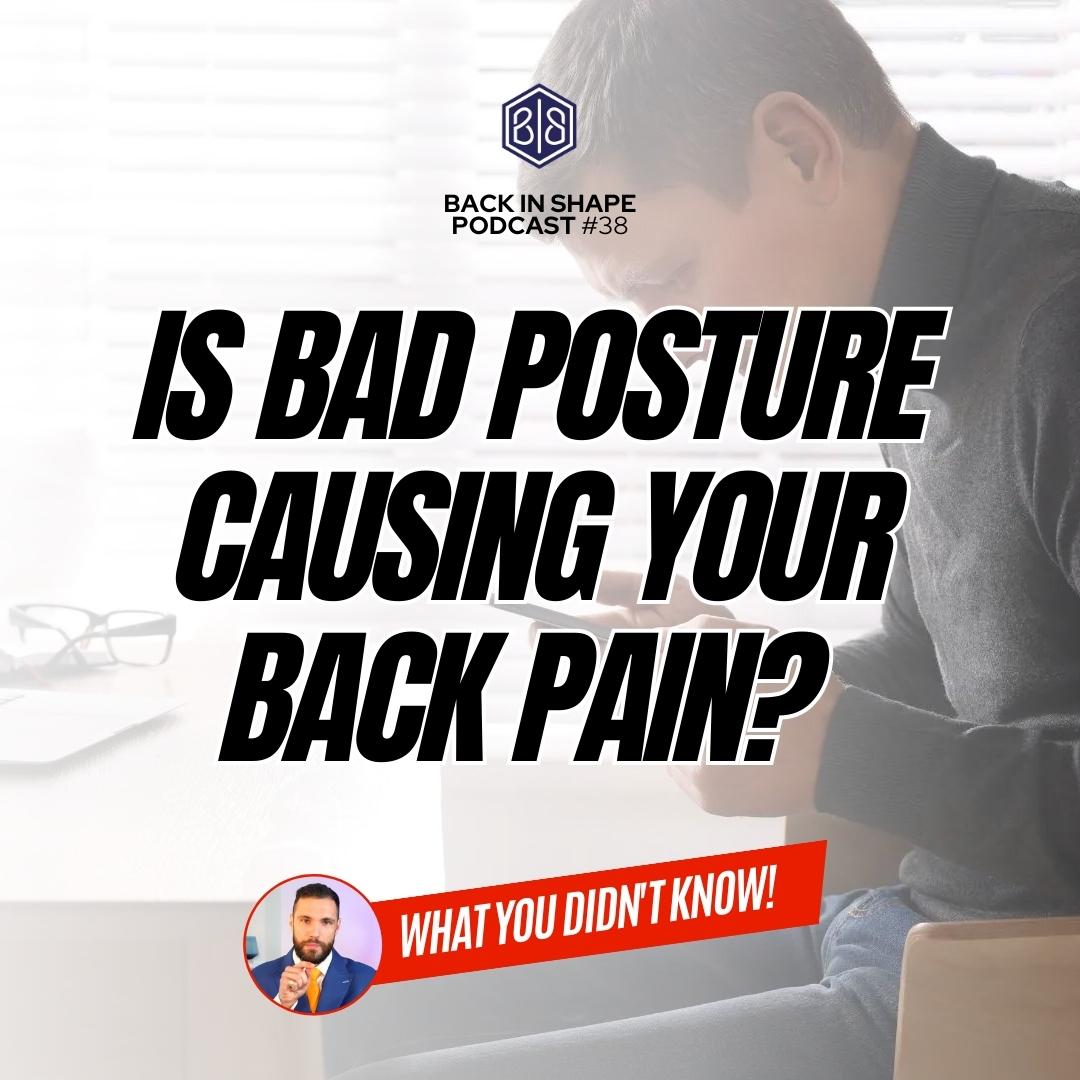It’s a common misconception when solving postural issues in the spine that going through a correction process will be painful. In reality, when done properly, this couldn’t be further from the truth. You may notice if you have bad posture during your day to day life, this could be if someone has told you that you’re slouching, or perhaps you notice tight shoulder muscles developing during the day or maybe you suffer from frequent bouts of headaches. These could all be signs that there may be an issue with your spine or your posture that needs attention. When done correctly, correcting your posture should not be painful because the changes that you make to your spine after a proper spinal assessment can only be obtained gradually and usually can be achieved in conjunction with strengthening exercises for the muscles that support the spine.
Identifying a posture in need of correcting
If you’ve identified that you’re suffering with poor posture, or you notice your posture slipping throughout the day – it may seem like an easy step to have someone assess your posture from a passive standpoint. This means you might have someone take a look at you while standing neutrally to identify if you’re leaning forward, if your shoulders are hunched or slouching forward, or if your pelvis is leaning too far back or in front. These may seem like helpful recommendations, but identifying how you stand versus actually getting a spinal assessment from a professional looking at the position of your spine – are two very different things. Passive examinations really aren’t specific enough to enable you to make effective and accurate changes that can affect the position of your spine, unless your problem is in the very early stages. Most of the time it’s very common to not act on a problem unless we’re starting to experience pain in an area, until it becomes an inconvenience. In this case, the problem could have existed for a number of months or even years, and in this situation you may have altered the actual position or alignment of your spine that could have detrimental effects on the health of your spine.
The role of imaging in posture correction
A professional and in-depth examination of the spine usually involves x-ray imaging, done standing up so that we can analyse the true position of your spine. X-ray imaging allows for an accurate observation to be made on what needs to be done structurally to change the spine, and can actually allow us to visually quantify the angles of your spine and compare them to that of a healthy spine.
In our experience from using x-ray analysis in resolving back complaints and postural issues, this approach allows for much more accurate judgements to be made and can help you to achieve a healthier spine. From time to time, we come across patients who have seen professionals before about their posture, but haven’t been able to see noticeable changes.
In certain cases, a patient may have been told they’re suffering from a certain complaint when in fact after x-ray imaging has been used to analyse the spine, this diagnosis could be incorrect because it has been based on an inaccurate observation.
Although an incorrect diagnosis may not seem like a big deal if you’re seeking a second opinion, you probably wouldn’t have sought a second opinion if a previous professional opinion had worked for your condition, acting on an incorrect diagnosis can have ramifications on the health of your spine in the long-term. Not only do you risk potentially worsening the position of your spine, you may accelerate deterioration in the spine particularly in the discs which could lead to more serious complications – such as disc bulges, herniations or severe degeneration that may be much more difficult or costly to fix.

Join The Back In Shape Program
A full protocol to support you get out of back pain in the short term and then rehab safely and effectively to deal with the issue for the long term.
See a professional about your posture
If you are suffering from bad posture, the importance of seeking the help of a professional who is going to use factual observations to find a solution, should not be understated. If you’re serious about solving a postural issue, especially if it’s starting to cause you pain in the lower back, upper back or cause side-effects such as muscle tightness or headaches, it’s much better in the long-term to find a professional who has extensive experience in dealing with postural issues. Not only could this save you a lot of money in the long-run by seeking the help of a professional and someone you have faith in from day one, they will be able to recommend a step-by-step programme of treatment that targets any pain you’re currently experiencing, and can offer you an effective rehabilitation programme to solve the problem and strengthen your spine.
At The Mayfair Clinic, we offer an extensive examination process involving a range of orthopaedic testing, followed by x-ray imaging if we deem it clinically necessary. By performing measurements before, and after undergoing an extensive rehabilitation programme you’re more likely to achieve positive changes and see the difference before and after. During rehabilitation, it may be common to experience aching in the muscles that support your spine – this is a perfectly normal part of the recovery process as your muscles are having to work harder than they have in a while in order to support the spine.
Don’t get tricked into using back supports
It can be tempting when you’re going through postural issues to think that one of the main aids that could help you to achieve a much better posture would be a back support or brace. In reality, these devices offer you no long-term benefits in actually resolving the problem and simply replicate what your muscles should be doing for your body if they were working correctly. Going through a rehabilitation programme including strengthening those vital supportive muscles allows you to take back control over your spinal health and make positive changes in your body. When a rehabilitation plan has been executed properly, the use of a back support or aid should not be required.
So if you’ve been suffering with postural issues, you feel like you need to know exactly what’s going on with your spine or perhaps you feel like you’re not achieving the results trying to correct your posture on your own, we can offer an in-depth assessment to give you the answers you’ve been looking for. By showing you visually your spine, we can offer you solid advice and a guided rehabilitation programme that when followed with patience and due diligence, can offer you a much healthier spine. To book your examination, call The Mayfair Clinic today on 0203 947 3222 or email us with details of your condition or back concerns to info@themayfairclinic.com.
Contact Us.
Email Us
info@themayfairclinic.com
Call Us
0203 947 32 22
Clinic Address
4 Cavendish Square, London, W1g 0PG.
